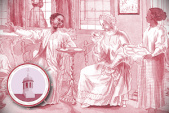IV.4 People, Social Life and Rituals

The Batavian notaries functioned in the same way in Amsterdam and ordering a document like a small business contract was affordable for every Batavian citizen. Hence thousands of documents in these notaryial archives were created at the initiative of Batavia’s Asian citizens. To understand this complex society one has to understand the lives of the individuals: the life of a Javanese paddy planter ‘Bapak Kurus’; the business of the Mardijker ‘Joseph Thomasz’; the problematic life of the freed slave ‘Susanna van Bengalen’; the economic opportunities for the independent woman ‘Anna van Bali’.
Individuals like those mentioned above all represent a social group in society which was ‘colonial’ in the sense that many immigrants were settlers and colonists. But it was also ‘colonial’ in the meaning of ‘the control of a foreign power over a territory and its people’. Although the European, mainly Dutch, colonists were a small minority, their institutions and representatives held sway over the majority of Asian colonists and Javanese inhabitants. Such a society was based on Western concepts of racism, inequality and slavery. It was maintained with violence and supression. Popular culture and daily life in Batavia thus took place within the boundaries of a racist, colonial regime and many testimonies from the archives illustrate this fact. At the same time, the lives of the majority of the people also took their own course of development and identity formation such as the peranakan Chinese and the group later identified as the ‘orang Betawi’ (Betawi people).




